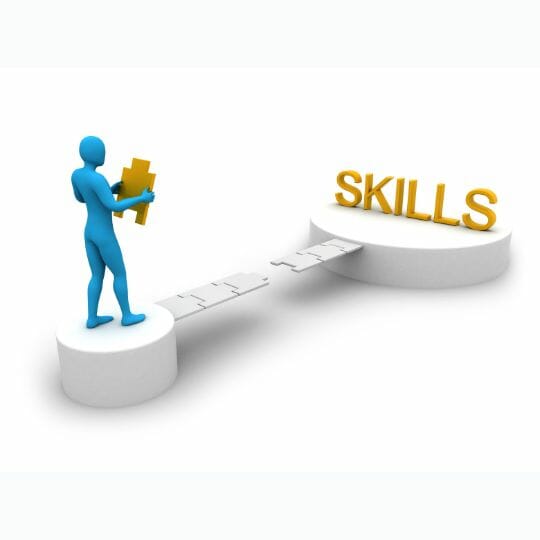
If you’re into your mid-30’s to mid-50’s and are feeling a bit restless, let me say this – your life is about to change. It’s a time is a culmination of many things in your life and a curiosity about the future – away from the hustle and grind, what is your true purpose in life? To help you ease into this transition, I will share some of my tips to find your mid-life purpose more easily. And although it might not seem like it, this episode is the second in my season about business and revenue growth, and we’ll talk about that, too.
There comes a point in life where you wonder what the point of it all is. Often, it’s when you reach your late 30’s, 40’s or 50’s. From hormones to work and empty nesting, everything is up for discussion. You’ve had a wealth of experience in a career, and you may be entering menopause or andropause.
There’s a new chapter of life ahead, and it makes sense that you might question who you are and what you’re meant to be doing – your purpose.
If you’re in this age group, you’re probably thinking about the years ahead – about your personal and financial security, how much money you need to retire, and how to build your assets.
For a lot of people, the shift involves taking your foot off the pedal and enjoying life more. You might be thinking about working smarter, working less or going part-time. And that raises a bunch of questions about how you will fill your days, or how to create a new lifestyle with more balance and financial security.
Aside from the amount of time at work, you might also be looking to switch to a new career where the work is more meaningful. You might be considering starting a lifestyle business or going to a completely different vocation – but giving back is often the key. It could be mentoring others around certain skills that you have or finding a way to help others in a way that uses your skill while giving you leveraged or passive income. Why does purpose matter? A study by the University of Michigan found that people who had higher levels of purpose had better physical agility than their less-purposeful counterparts. Further,
Washington University’s Purpose, Aging, Transitions and Health Lab found that more purposeful adults enjoy better cognitive function and greater longevity, and better self-care.
There are three themes emerging here. Mid-life purpose involves seeking greater freedom of time and money, and more purposeful work. The result is a better quality of life, health and longevity.
I went through this at 35. After 15 years of hard work and burnout, I reinvented myself and stepped away from running a medium-sized business into a small business with no employees, working less and doing more meaningful and impactful work. Now, 16 years later, I am running a lifestyle business that gives back and affords me time off to be in nature and explore other avenues of joy.
The thing is, as you get older, your past behaviours can catch up with you and may result in health issues. I want to take action now and avoid health issues caused by any unhelpful or unhealthy beliefs, thoughts or actions, so I can live an exceptional and joyful life.
If any of this is resonating, then let’s look at a process of exploring your mid-life purpose, so that you can align your abilities and strengths with your aspirations for the future.
I want to share my process with you as an example of how you might explore your own mid-life purpose and figure out what’s next for you.
Amidst a busy work and family life, it can be easy to lose your identity. Your work (or role in the family) can end up defining you.
This happened to me. I was a Director and General Manager of a medium-sized business and because I became consumed by the role, my self-worth was pinned to it. When I moved to NSW in 2007, I felt like I was a nobody with nothing to offer.
To reinvent myself and craft a new identity, career and lifestyle, I had to explore my purpose – what mattered to me, and how I wanted to contribute.
An easy way to do this is to write down a list of all the things you love to do – or would like to learn how to do – but don’t seem to have enough time for.

Next, think about everything that’s on your bucket list of things to do before you die.
If you feel stuck, look to your past and your leisure time for clues. Consider what you loved doing as a child, what you do to relax, or what you do that comes easily but others find hard.
Think about the role models in your life and what they’ve done, that you would like to do, too.
Please put your fears and obstacles aside when you do this. Let your brain come up with all the crazy ideas unfettered and build a big list.
You might also like to do a strengths test, personality quiz, or anything that helps you identify and acknowledge your skills and character traits.
It’s just a list! But it’s also a starting point for change.
When I did this exercise, I realised that I was passionate about health and fitness, I loved being near the beach and being in nature. I liked deep conversations with the right kinds of people. I loved personal growth, psychology and leadership and listening to understand others. I enjoyed puzzles, mysteries and solving problems. I also realised I wanted to run a business on my own, not in partnership.
All of this led me to start looking at health-related business options, and then I stumbled across coaching as the methodology that combined many of my desires in one vocation.
Now it’s your turn. Block out some time to create YOUR list!
Tony Robbins’ model of the 6 human needs explores core needs that affect what we do each day, and why we do it. In other words, every thought we have and the resultant action we take is driven by one or more of these needs.
Robbins says that dysfunctional behaviours come from our inability to consistently meet these needs – but that they are also behind the good things that we can accomplish.
By understanding your core needs, you might discover a starting point for the next part of your life or identify areas that you’d like to work on to improve the quality of the rest of your life.

When I took this test, Uncertainty was high on my needs list – which means I tend to seek variety and excitement. This is true, but I know that at times, my need for variety and excitement means I get bored easily and delay finishing tasks, or I might take on too much, or be impulsive or rash when making decisions. That explains the burnout I experienced years ago – and thankfully I have developed strategies to reduce or avoid the negative side of Uncertainty.
For me, taking this test is about fine-tuning and going to the next level, as I am pursuing growth.
My recommendations were to focus on Growth and Contribution. These are definitely coming up as needs for my next stage of life.
My goal is to change my business model, so I am creating more impact and giving more, while working less and maintaining income, partly through leverage or passive income sources. With more free time, I can work on personal growth. I can also devote more time to spirituality, physical health, mental health, and socialising, which have been a bit neglected in the past 5 years.
I encourage you to take this test and see what is driving you, and any areas for improvement. It gives you some recommendations of what you can focus on to counteract any negatives that might show up in your behaviour.
And with your list of skills and strengths, and needs, you are in a position to pull it all together and see what shakes out.
You’ll see some common themes in what you want, what matters to you, who you are, and how you work. So then, what do you do with all that?
Well, since we are on the topic of business and revenue growth in this season, I want to finish this episode with a couple of final points in that direction to help you explore options for how you work on purpose.
How do you feel about working a job for someone else?
Your working hours are defined, and your remuneration is capped. Maybe you’re fine with it and it is a safe, secure and comfortable way for you to live your life. In this case, maybe your purpose is explored and expressed outside of work, via hobbies, charitable work, or simply being more involved in your community or in volunteer organisations. Great! Go explore those things.
For some of us with a more entrepreneurial mindset, we feel that our work is our best opportunity to give back and make an impact. We are the people who want to step away from working for others or in roles that feel constrained, or lacking in purpose.

We are the people seeking time and money freedom, creative expression, and an opportunity to do more purposeful work.
This is me, and I have created this in my business. I work in three key areas – teaching, business strategy and business coaching – and am on the board of our industry association. This gives me the variety and excitement I want. It allows me to work purposefully and provides the income and lifestyle I desire. I am now looking at leverage, so I can help more people and work less, give money to charitable causes and pursue personal health goals to set me up for a strong, healthy future.
Here are some ways that you can transition from where you are now, to start working more purposefully. They are all about you working in a way that you give incredible value to the people you work with.
By focusing on the value of what you do and your passion for it, you can usually ask for higher fees.
And depending on how you set things up, you can earn a regular income or a leveraged or passive income from any of these options.
The regular income version is simply having regular clients.
The leveraged version is working with groups.
The passive version is developing online training courses, new technologies or physical products. If you want, you can offer add-on services to these. I want to share an example of how this can look, via copywriter Jay ‘Crisp’ Crow.
Some people move away from their career but then end up consulting back to the organisation they used to work for – or others like them.
This is a great way to stay in touch with your skills but pick the work you love to do best. It also means that you work with a few clients and get paid well to do high-level work that recognises the specific value you offer.
Just ask Jay Crisp Crow. Her first career was working in private school communications. She took a leap of faith into starting a business that was essentially a consulting business.
She wrote copy for small businesses so they could create exceptional landing pages and websites. And she was soooo good, she went viral, and she started upping her prices as the value of her work was realised and shared. At this point in time, she charges $6,000 per single sales page on a website.
If your career has led you to be highly skilled in one or more areas, you have a great opportunity to give back to others.
Personal mentoring as an unpaid venture, or professional mentoring as a lifestyle business, are two ways that you can leave the 9 – 5 grind behind and give back to the rising professionals in your industry.
Either way, the joy of teaching others and helping them with their struggles can be super rewarding and fulfilling.
With her services being more expensive, Jay Crisp Crow created a coaching service to help people do it themselves, with her guidance.
At this point in time, a 1:1 session with Jay is $550 per hour. And these days, it’s application only.
If you wish to reach more people or build more revenue, then online courses (or products) are a great way to do that.
The OTHER side of online courses is that if your coaching fees are a bit high for some people, then your courses offer a lower cost option to get your support. This is great if you want to scale your business.
Jay Crisp Crow developed a bunch of copywriting resources that are free or low cost, and she also has a DIY program option for $750, full of teaching modules and masterclass recordings.
If you’re a coach and wondering how an online course works – it’s simply you focussing on a topic and asking people a bunch of questions to guide them through self-inquiry.
That’s a topic for another day.
Wow, what a jam-packed discussion this was today.
We talked about why people in their mid-30’s to mid-50’s get restless and start wondering ‘what’s next?’
It’s a time of reflection and anticipation of your future identity, and real purpose in life.
I shared some tips to get clarity on what’s next:
There are a LOT of options here. I explored them in depth not to blow your mind, but to help you see the options you have and give you a sense of how to navigate them.
Now, over to you. What’s ahead? What will you do next?
I can’t wait to see. Let me know!
Understanding who you are and what you need will allow your business to thrive! If you’re truly ready to break old habits and get out of the rut I encourage you to check out the Habitology membership.
Learn more here: